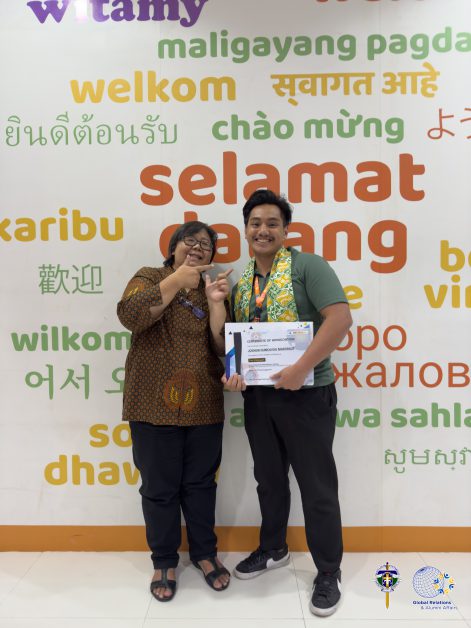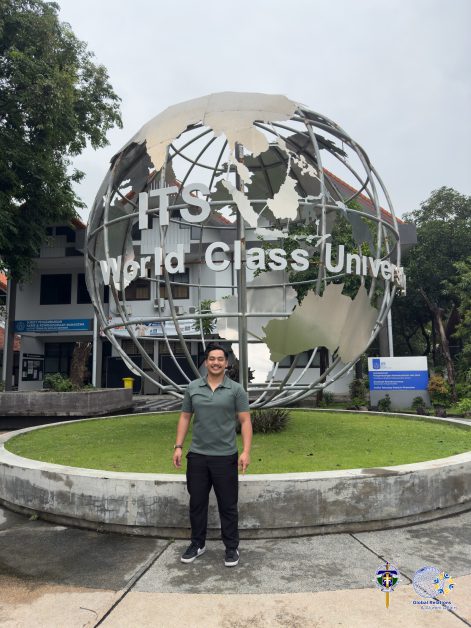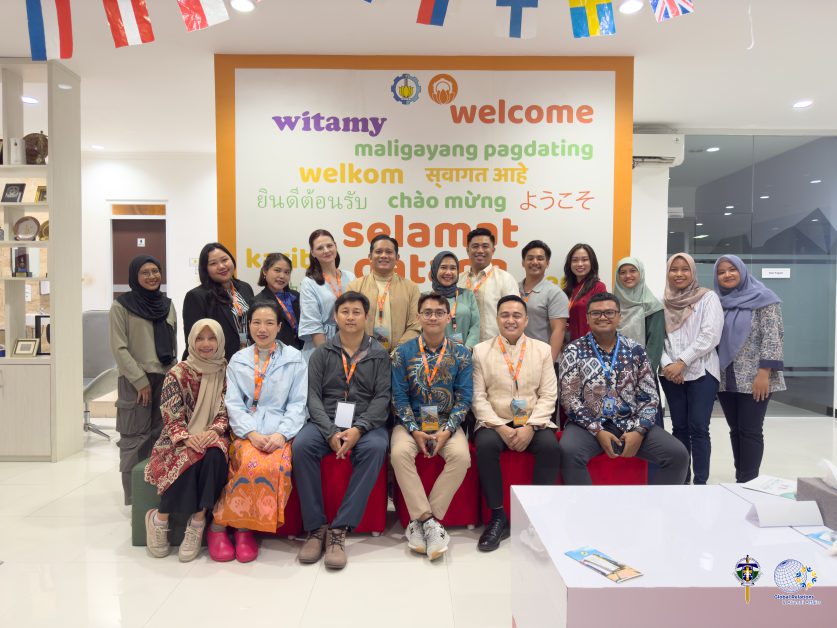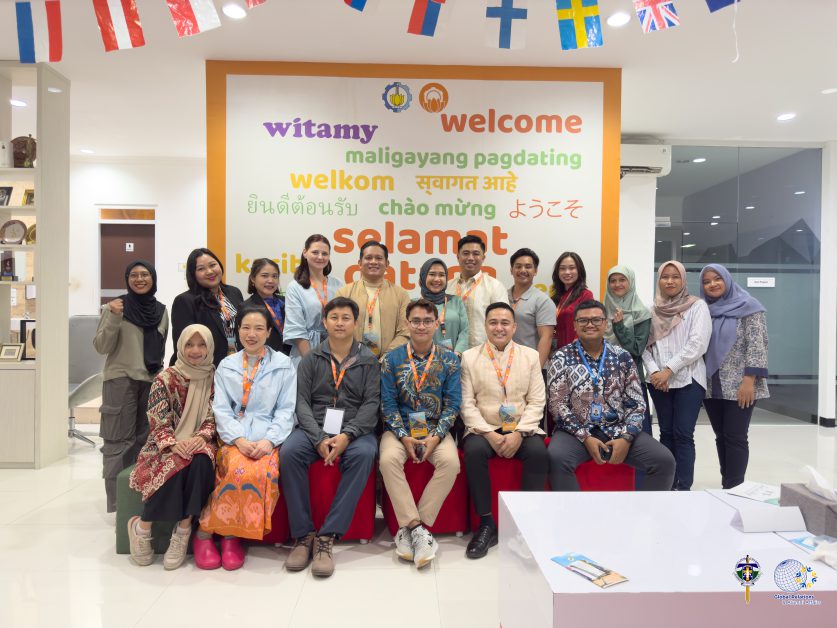Saint Louis University (SLU), through the Internationalization and Alumni Affairs Coordinator of the Office of Global Relations and Alumni Affairs (OGRAA), Mr. Joshua D. Madongit, attended the Global International Training and Workshop for International Office Staff hosted by the Global Engagement Office at Institut Teknologi Sepuluh Nopember (ITS) in Surabaya, Indonesia.
Held on 21-23 January 2025, the three-day training program for international office staff was packed with activities focused on developing competencies in different areas, including practical guidelines and workshops on internationalization for higher education institutions. Among the topics covered were internationalization at home, guiding student volunteers, managing mobility (for students, instructors, and non-academic staff), overseeing international partnerships, and internationalization at home.
The program began with a discussion on Workshop of Internationalization challenges and opportunities in different contexts, the Internationalization Journey of ITS that examine its global engagement, Enhancing Global Reputation through promotional materials and online presence, Understanding World Ranking Systems, and concluded with a worksheet debrief that highlights the program and achievements of the World Class University (WCU).
The schedule of events for the second day was more eventful. The participants began the day by learning about managing international partnerships, which covered the importance of establishing and sustaining partnerships that benefit all university stakeholders. Additionally, the partner selection criteria were discussed, focusing on three key aspects of the selection process: programs offered, geographical location, and partner characteristics. Furthermore, the handling of international visitation was explained to the participants.
The discussion was followed by the proper operation of information technology in line with the accessibility of information for managing international offices. Additionally, it addressed ITS’ participation in the consortium, focusing on initiating and managing academic collaborations and the Preparation of Semester Learning Plans (RPS).
The topic of Internationalization for Lecturers and Non-academic staff was also discussed with information on the outbound and inbound mobility staff. One of the topics involving Local Partners in Internationalization Programs was one of the topics, acknowledging their partner universities from 2018 to 2024, as well as the selection process. The group also visited local partners before ending with a networking dinner.
On the final day, the attendees tackled Internationalization at Home – Student Development Cycle for each year from first to fourth years and different programs of ITS like From Students for Students (sharing session with students who had experienced international exposure), Mentorship Program, Live Massive Online Open Courses at ITS) and Global Competencies Workshop, Managing International Students, Developing Short Programs by structuring the plan finding the reason, right partners, right topic and right setting with the pre, during and post program actions. The host of the program also shared the Amazing Journey of ITS Student Volunteers, and Workshop for Joint Programs.
Through this training, Mr. Madongit and other international office employees had a great opportunity to learn about successful internationalization tactics, build global relationships, and further international education. The event supported three UN Sustainable Development Goals: Quality Education (SDG 4), Decent Work and Economic Growth (SDG 8), and Partnerships for the Goals (SDG 17).


The program helped create global partnerships and economic opportunities by encouraging professional growth, teamwork, and easy access to quality education. These efforts promote fair and inclusive learning while strengthening international cooperation.
Moreover, with this opportunity, participants had an impactful learning experience. As a result of their need for observation, discussions, workshops, and socialization activities, the global internationalization training helped develop strategies and programs that can be directly implemented in their home countries.
Article by: Leah Labang and Izzabel Baniqued



